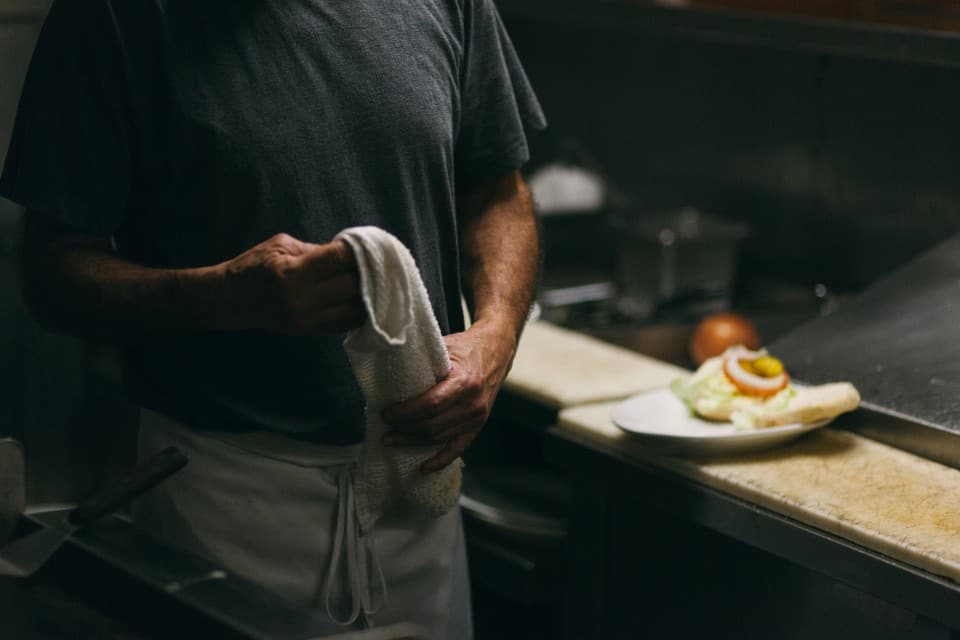[dropcap]O[/dropcap]ne of the great benefits of U of T’s St. George campus is its centrality within Toronto’s ever-expanding landscape. Students have the privilege of being at the epicenter of a burgeoning cultural scene. Although its artistic precedence is often overshadowed by the stage, page, or canvas, Toronto’s culinary culture is more popular than ever.
Of some 42,708 students attending the St. George campus, many tire of cafeteria food and its common atmosphere. Instead, they seek out inspired dishes prepared at exciting and trendy restaurants. While many search for the best spots to eat in Toronto, and where the best food will be, we rarely consider the life of those who prepare it for us. Since U of T lacks its own culinary arts program, many students don’t really have a clear perspective on the inner-mechanisms of Toronto’s culinary world. Most importantly, we often overlook the shady side of the culture that surrounds it.
The Globe and Mail published an article earlier this October outlining the arduousness of restaurant work; the long hours and low wages that cooks, servers, and dishwashers are often subjected to. They estimate that employees frequently work over 50 hours a week making minimum wage without overtime. They are well-fed, yet financially starving. If the kitchen can be a catalyst for stress and anxiety amongst its employees, how does one deal or cope with this tension?
After years working in a kitchen, the tendency for those working in the industry to develop problems with drug abuse, alcoholism, and general self-destructive behavior no longer comes as a surprise given the conditions. Yet it seems as though this observation is not entirely an isolated experience. In fact, it has become somewhat of a trend in the industry itself.
Drew Mattiacci, an aspiring chef who has worked at The Piping Soup Kettle Co. can testify to the problems that chefs in the food industry face. “A lot of cooks and chefs work long hours with no breaks, so to compensate for that they take up smoking as an escape from the line,” he tells me. “To keep up with the upbeat and fast environment, cooks rely on uppers — the worst being cocaine — to keep themselves alert and ready for what can be a long and busy night.”
When I ask Tyler King, a cook who has worked at numerous Toronto establishments, about this aspect of restaurant culture, he remarks that “working in kitchens is pretty low on the totem pole as far as social hierarchy and everything. The work is really hard on a couple levels, the pay is shit, and the hours are terrible. So we try to live like rock’n’rollers to feel better about ourselves.”
Often the coping mechanisms that cooks and chefs use to deal with the stress of the kitchen get carried outside the workplace. After a long, 12 hour shift that would end past last call, King would often end up at various after-hours bars — places which were known to serve alcohol until the early hours of the morning and would turn a blind eye to other, often illegal, indulgences. These places accommodate industry folk who work late, but still want to unwind and socialize after regular business hours.
The manager of a popular restaurant and bar in Toronto’s west-end, who wishes to remain anonymous so as to not implicate or jeopardize their job, noted that they felt “overworked,” due to long shifts and high pressure environments. After work, “I end up partying so hard…the lucky thing about my job is that I work long hours…but I am out of there by 1:30 [a.m.] so I can slam back a ton of booze afterward…I’ve never done that thing where you ‘bump’ before you go to work, but I have definitely had days where I’ve slept for only a couple hours the night before.”
Despite the forms of substance abuse that are a frequent reality of restaurant life, Chris Mathias — a seasoned professional chef of 31 years, who currently works at Cote De Beouf — is quick to note the bright side to working as a chef. “It’s a hard life and it’s not perfect…but if you work hard you can reap the benefits,” he tells me. “There are a lot of worse jobs out there and a lot of worse places to be.”


